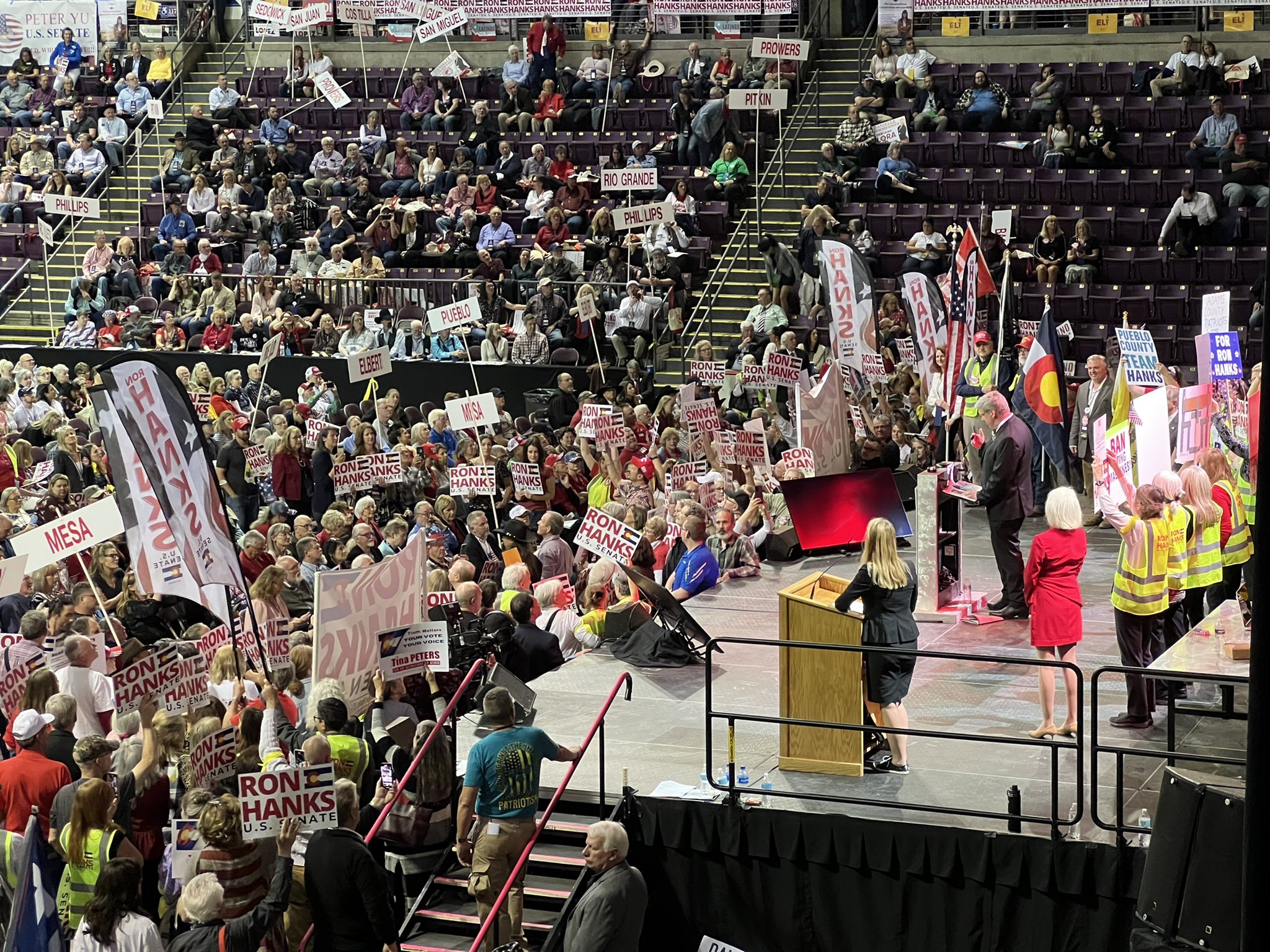
The upcoming midterm elections are expected to be mostly about pocketbook issues, including high gas prices and rising inflation. But the U.S Supreme Court decision on abortion expected later this month has thrust that issue into the spotlight, especially in Colorado’s GOP Senate primary race.
The two candidates vying for the nomination to challenge Democratic Sen. Michael Bennet this fall maybe didn’t set out to talk about abortion — but with the looming ruling, it could become a bigger issue for them as voters have their ballots in the mail for the June 28th primary race.
The candidates take different stands. Republican Representative Ron Hanks said he believes life begins at conception. He doesn’t support the procedure at any phase, with no exceptions.
“It may be a social issue, but you know, it's more than that it's murder,” he said.
Businessman Joe O’Dea said he does think the procedure should be legal in the early stages of pregnancy.
“I don't support a total ban early in the pregnancy, and for certain emergencies,” he said.
Neither candidate would back state or federal funding for abortion.
O’Dea’s position is likely to make his views on the topic aligned with more voters in Colorado’s general election. Voters have struck down "personhood" ballot initiatives which would have defined personhood as beginning at the moment of conception, giving fertilized human eggs the same constitutional rights as a person.
Then two years ago there was a much more limited proposal on the ballot to restrict abortions later in pregnancy. It also failed. Right now Colorado continues to be one of the few states in the country that has no limits on when an abortion can be performed during pregnancy.
Even though a smaller percentage of voters oppose abortion rights than support it, it could spell some trouble in the GOP primary race even for Republicans who think O’Dea is the stronger candidate to go up against Bennet.
Conservative radio host Dan Caplis asked O’Dea about it on his show.
“I was just telling people I know from DC over the weekend, hey, I'm really impressed with this guy. I liked him. I think he's going to beat Bennet and all this and that. But now the whole landscape is changed for me because for me abortion is foundational. So what do you say to folks like me? Who could never imagine voting for somebody who would codify Roe?”
O’Dea responded that he was sorry. “I believe in what I believe. I respect your opinion. I'm going to make sure that it doesn't get worse than what the situation is now.”
O’Dea has said he’s trying to take a middle of the road stance on the issue.
“I'm telling you right now, the country is not a hundred percent pro-life. It's not a hundred percent pro-choice. I believe in balance,” he said in a debate at the Grizzly Rose bar and concert venue in Denver in May.
O’Dea’s answer isn’t good enough for voters like Mary Starke who recently attended the Western Conservative Summit in Aurora, a large gathering of conservatives and high profile speakers.
She said she just can’t vote for someone who wouldn’t try to ban abortion federally.
“Our Lord made each and every one of us in the likeness of himself and he didn't make us to kill our babies. He didn't do that,” Starke said. “And where the women are getting off, thinking that it's okay is so scary.”
She said it’s a conundrum to pick a candidate when trying to find common ground with them and deciding what’s a dealbreaker.
“They all have good points and that's what kills you because you get down and you do the pros and cons and it's like gosh dang it, isn't there someone that just goes straight down the line that agrees with, you know, at least 85% of what I'm thinking,” Starke said.
But for voters like Eliseo Gonzalez, a Republican from Aurora, who said he tends to back moderate candidates, O’Dea’s position on abortion wouldn’t be a deterent.
“Even though I am pro-life I'm more focused on other things that just affect us more day to day,” Gonzalez said.
He said economic issues and improving the quality of life for everyday Coloradans will drive his decision.
“My main question for candidates is what they plan on doing on helping I guess the middle class with fuel and with the gas prices that they are.”
O’Dea and his supporters believe the majority of voters in the primary electorate are more like Gonzalez, and concerned mostly about economic issues rather than worrying about the future of abortion. O’Dea, a first time candidate who is a contractor, is focused on inflation and increased crime rates.
“You always have to remember that the average voter does not care about what a politician has to say, does not care about politics,” said Republican political consultant Tyler Sanderg, who is not involved in the primary race but has endorsed O’Dea.
“They gotta pay their bills,” Sandberg said. “They gotta take care of their family and politics falls way down the spectrum.“
The Supreme Court decision will likely come before Colorado’s primary on June 28th. Many voters already have ballots. Former GOP state party Chair Dick Wadhams said he doesn’t think the decision itself will influence votes.
“I think that the battle lines are already kind of drawn,” said Wadhams. “Anybody who's going to vote for or against O’Dea because of abortion, they're going to do that regardless of what that decision is. I'm not sure that decision directly impacts the primary.”
The bigger factor in the primary at this point is likely a new nearly $1 million television campaign from a Democratic group to boost Hanks. Another unidentified group, not the Hanks campaign, has sent attack ads to mailboxes touting Hanks' conservative credentials and criticizing O’Dea.









